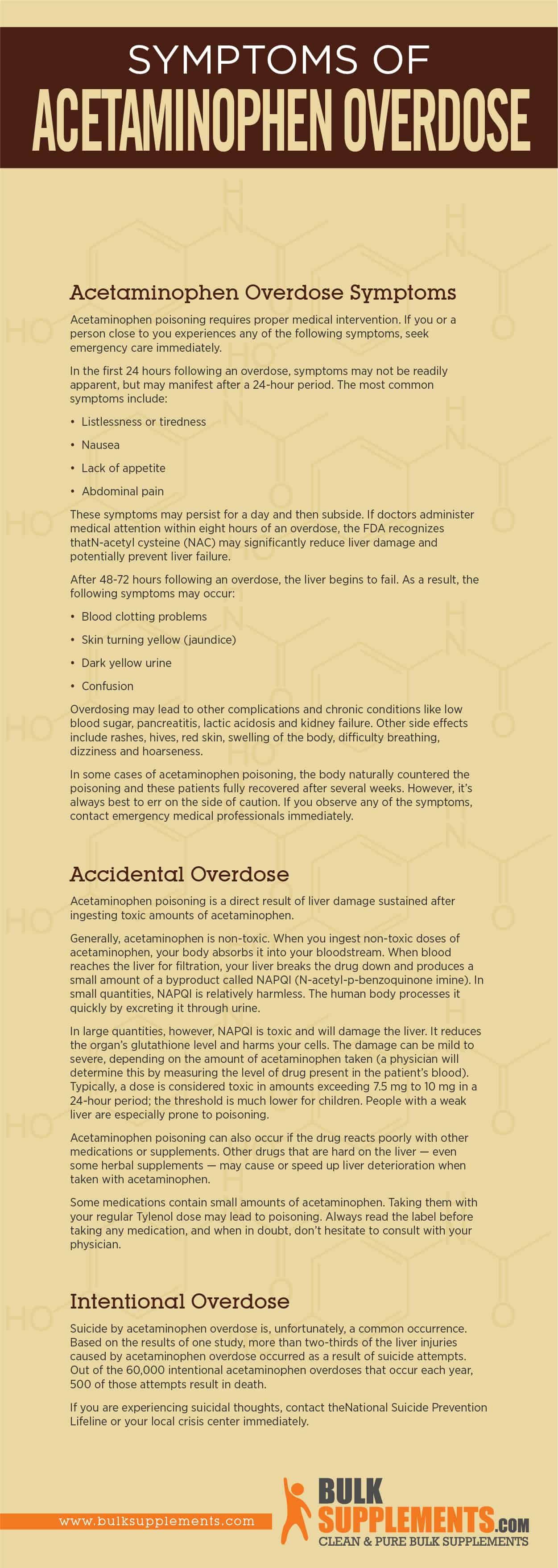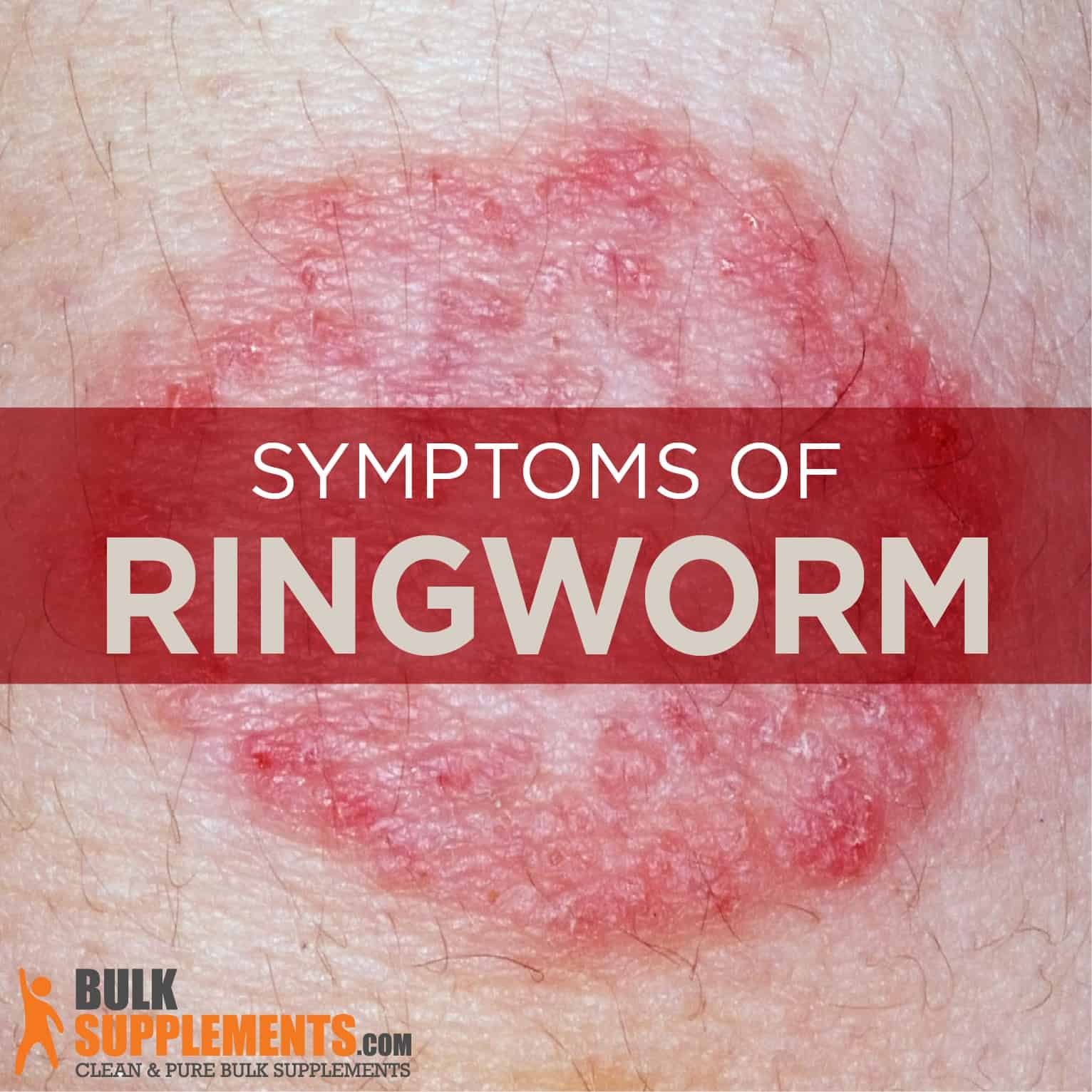Acetaminophen Overdose: Characteristics, Causes & Treatment
by James Denlinger Digital Marketing StrategistWhat is Acetaminophen Overdose?
Acetaminophen is the most popular over-the-counter medication in the world. Widely recognized by the brand name Tylenol, it’s primarily used to relieve pain and reduce fever. While it’s considered a safe and effective medication, ingesting more than the maximum prescribed dose (usually 3-4 grams or 3,000-4,000 mg every 24 hours) may lead to an acetaminophen overdose (also known as acetaminophen poisoning).
Over 100,000 cases of acetaminophen poisonings occur in the U.S. each year. Overdoses can be accidental or intentional. The most commonly affected are young children, people with a history of liver illness and those who regularly consume alcohol or narcotics. If the liver is already damaged due to infection or alcohol abuse, a person may be more susceptible to acetaminophen poisoning.
Acetaminophen overdose is a serious condition. If left untreated, it can irreparably damage the liver. According to a report published in the British Medical Journal, the drug accounts for about half the cases of acute liver failure in the United States. Liver failure can be life-threatening and may necessitate a liver transplant to save a patient’s life.
What are the signs or symptoms of an acetaminophen overdose? Can you prevent long-term side effects from developing after an overdose has occurred? And how do you prevent an acetaminophen overdose?
Acetaminophen Overdose Symptoms
Acetaminophen poisoning requires proper medical intervention. If you or a person close to you experiences any of the following symptoms, seek emergency care immediately.
In the first 24 hours following an overdose, symptoms may not be readily apparent, but may manifest after a 24-hour period. The most common symptoms include:
- Listlessness or tiredness
- Nausea
- Lack of appetite
- Abdominal pain
These symptoms may persist for a day and then subside. If doctors administer medical attention within eight hours of an overdose, the FDA recognizes that N-acetyl cysteine (NAC) may significantly reduce liver damage and potentially prevent liver failure.
After 48-72 hours following an overdose, the liver begins to fail. As a result, the following symptoms may occur:
- Blood clotting problems
- Skin turning yellow (jaundice)
- Dark yellow urine
- Confusion
Overdosing may lead to other complications and chronic conditions like low blood sugar, pancreatitis, lactic acidosis and kidney failure. Other side effects include rashes, hives, red skin, swelling of the body, difficulty breathing, dizziness and hoarseness.
In some cases of acetaminophen poisoning, the body naturally countered the poisoning and these patients fully recovered after several weeks. However, it’s always best to err on the side of caution. If you observe any of the symptoms, contact emergency medical professionals immediately.
Causes of Acetaminophen Poisoning
Accidental Overdose
Acetaminophen poisoning is a direct result of liver damage sustained after ingesting toxic amounts of acetaminophen.
Generally, acetaminophen is non-toxic. When you ingest non-toxic doses of acetaminophen, your body absorbs it into your bloodstream. When blood reaches the liver for filtration, your liver breaks the drug down and produces a small amount of a byproduct called NAPQI (N-acetyl-p-benzoquinone imine). In small quantities, NAPQI is relatively harmless. The human body processes it quickly by excreting it through urine.
In large quantities, however, NAPQI is toxic and will damage the liver. It reduces the organ’s glutathione level and harms your cells. The damage can be mild to severe, depending on the amount of acetaminophen taken (a physician will determine this by measuring the level of drug present in the patient’s blood). Typically, a dose is considered toxic in amounts exceeding 7.5 mg to 10 mg in a 24-hour period; the threshold is much lower for children. People with a weak liver are especially prone to poisoning.
Acetaminophen poisoning can also occur if the drug reacts poorly with other medications or supplements. Other drugs that are hard on the liver — even some herbal supplements — may cause or speed up liver deterioration when taken with acetaminophen.
Some medications contain small amounts of acetaminophen. Taking them with your regular Tylenol dose may lead to poisoning. Always read the label before taking any medication, and when in doubt, don’t hesitate to consult with your physician.
Intentional Overdose
Suicide by acetaminophen overdose is, unfortunately, a common occurrence. Based on the results of one study, more than two-thirds of the liver injuries caused by acetaminophen overdose occurred as a result of suicide attempts. Out of the 60,000 intentional acetaminophen overdoses that occur each year, 500 of those attempts result in death.
If you are experiencing suicidal thoughts, contact theNational Suicide Prevention Lifeline or your local crisis center immediately.
 PIN IT
PIN ITAcetaminophen Overdose Remedies and Supplements
An overdose of acetaminophen requires proper treatment. If you suspect you’ve overdosed or if you’re suffering from any of the symptoms, seek medical assistance immediately. Proper and immediate diagnosis and treatment can decrease the chance of liver failure or long-term damage.
A doctor can measure the acetaminophen levels in your blood and, if the levels are too high, the doctor will administer treatment. In cases where the liver is beyond recovery, a liver transplant may be required. Successfully diagnosing and treating an acetaminophen overdose requires evaluating the situation on a case-by-case basis.
While there aren’t any at-home remedies for acetaminophen overdose, you can avoid it altogether by being cautious with your dosage. Unless your doctor explicitly specifies otherwise, do not take more than 3-4 grams of the medication within a 24-hour period. Make sure you don’t mix it with other drugs containing acetaminophen. If you miss a dosage, don’t “make up” for it by doubling your dosage later.
Acetaminophen dosage for children depends on the child’s body weight. Read the instructions and adhere to the dose your doctor prescribes. If you’re unsure about the correct dosage for your child, talk to your doctor.
Older adults and seniors are more susceptible to the negative effects of an acetaminophen overdose, including liver failure. Keeping your liver healthy won’t prevent acetaminophen toxicity, but it can aid in recovery.
To keep your liver healthy, avoid alcohol and sugar-rich foods. Eat fresh vegetables and fiber-rich whole grains, and choose fish over red meat. Don’t forget to drink plenty of water!
Did You Know?
As a pain reliever and fever reducer, acetaminophen is the most common drug ingredient in America. It can be found in 600 medications and OTC prescriptions.
Miracle Cure for Muscle Ache? Not Really!
While acetaminophen can effectively relieve headaches, fever and minor aches, it may not be effective at reducing inflammation. This is because acetaminophen is a non-opioid analgesic, which works by attacking an enzyme called COX-3 in the central nervous system. Other non-opioid analgesics, like ibuprofen and aspirin, work by blocking the enzyme COX in the peripheral nervous system, which makes them better suited to treat muscle aches.
Don’t Use It to Cure Hangovers
Many people don’t think twice about taking Tylenol to relieve a hangover, but taking acetaminophen with alcohol can overload your liver. If you’re a chronic drinker, you could be risking liver failure, and acetaminophen will only make it worse.
It’s Tylenol and Much More
Numerous medications contain acetaminophen. Some popular over-the-counter examples include Actifed, Formula 44, Panadol, Sinutab, Theraflu and Vicks. Some prescription-only medicines that use the drug as an ingredient include Butalbital, Hydrocet, Tapanol, Ultracet and Zydone.
Acetaminophen is the Nation’s Leading Cause of Liver Failure
Approximately 50,000 to 60,000 acetaminophen overdoses occur each year in the United States. Attempted suicides constitute more than two-thirds of all liver injuries caused by acetaminophen poisoning. Fortunately, only a minor percentage is fatal.
Out of 663 patients who suffered severe liver injury caused by an acetaminophen overdose, 34.3 percent were from attempted suicides.
The Bottom Line
Acetaminophen is a very useful drug, but only if you’re careful with the dosage. When taken in quantities exceeding the recommended dosage of 3-4 grams each day, it can be toxic and may harm the liver. Without immediate treatment, it can lead to organ failure and may even prove fatal. The good news is that by following some basic precautions, you won’t have to worry about acetaminophen poisoning.
Sponsor Ads
Created on Apr 4th 2020 18:45. Viewed 436 times.




